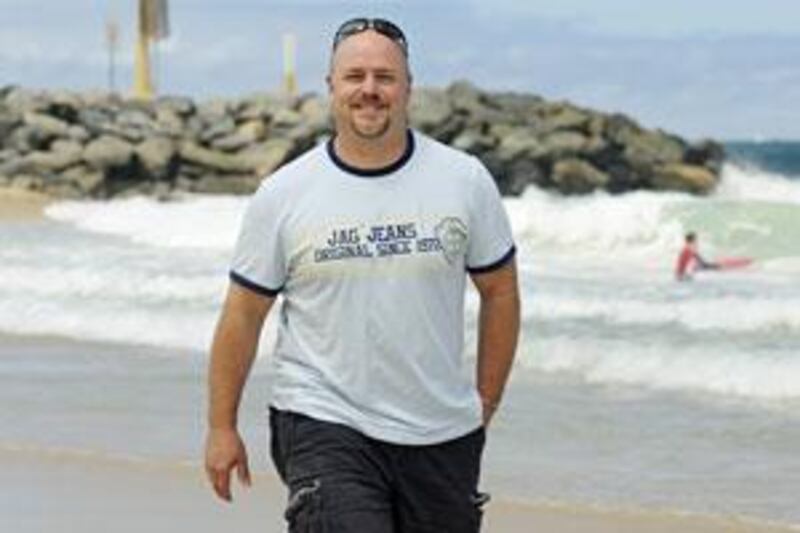PERTH, AUSTRALIA // The steady stream of educated, mostly white South Africans to Western Australia is continuing apace as migrants seek to escape from rising crime and regional volatility. The phrase "Packing for Perth" has come to symbolise the flight of Southern Africans looking to make a fresh start thousands of miles away across the Indian Ocean. Paul Llewellyn, a Johannesburg-born Greens MP in the Western Australian parliament, said the coastal state capital with its golden beaches and a population of 1.5m has been a natural choice for a host of émigrés.
"Historically, people from South Africa have found it very easy to migrate over to Perth," he said. "It's a very similar climate and it's very affluent and very appealing to South Africans to land here." According to official statistics, 5,200 South Africans migrated to Australia in 2007-08, making them the sixth-largest group of new settlers behind those from New Zealand, Britain, India, China and the Philippines.
"The problem is clearly there's a brain drain," Mr Llewellyn said. "Many of those professional people from South Africa who can't really see a future for themselves are exiting the place and are taking their wealth and their intellectual property and that is stripping South Africa of a really important resource. It is primarily white Africans. "They are to some extent economic and social refugees."
Doug Horak left Johannesburg 18 months ago to join his brother in Western Australia, with escalating crime the main catalyst for his move from South Africa. A violent confrontation with intruders at his parents' farm convinced the 40-year-old recruitment manager to consider leaving his homeland. "At about 1.30am I awoke with the dogs barking and I could hear one of the patio doors being banged," he said.
"I always carried a firearm and walked up the passage and two of the dogs came rushing past me going absolutely ballistic. I got three or four feet from the door and realised there was a guy trying to come through this door, which had glass panes. The fact that there were two huge dogs on the inside and him still trying to come through led me to believe there was either one or two more outside," Mr Horak said.
"I fired a few shots through the glass over his head and then ran outside and fired a few more shots into the trees. It certainly wasn't as bad as other people have had to deal with but it was terrifying enough." Settling into a safer life in Perth has taken time and for Mr Horak the dark memories have been hard to erase. "The first time a car backfired, you dive for cover and you look for who has been shot. It's a bit ridiculous at first. You are very wary when you approach traffic lights because those are the traditional spots the hijackers would be."
Crime also forced Heidi Cornelissen, 38, and her husband to seek new pastures in Perth, a clean and spacious city that was recently voted one of the world's best places to live. "One of my biggest fears about leaving South Africa was leaving the friends but I felt I was ready to go," said Mrs Cornelissen, a former accountant who now runs a business as a life coach and was the victim of both a hijacking and a burglary.
"The interesting thing about me is my life is completely new, from my work as well as my personal life. I phoned my husband today and said 'do you know how happy I am?' This is where my soul wants to be." Links between the two former British colonies run deep and the gold rushes of the 1850s attracted South African prospectors to south-eastern Australia, and in modern times, Mr Llewellyn believes that as well as bringing valuable skills to such cities as Perth, some South African expatriates carry with them more unsavoury baggage.
"As a coloured South African, I think sometimes they bring some of the bad values with them, the racist attitudes and a little bit of the same kind of greediness that comes with being able to have free access to cheap labour." In response, Mr Horak said while he had noticed bigotry in Perth, it had nothing to do with Southern African migrants. "What has been quite interesting is the underlying racism I found here toward the local Aboriginal populace from the general public. It is not as in-your-face as the very strong, conservative attitude back in South Africa but it's certainly here."
Despite effectively being forced out of Johannesburg by criminals, Mr Horak insists that while Australia is a prosperous sanctuary, his heart will always belong to the old country. "Perth is never going to be the same. It is never going to be South Africa. If I'm fortunate to have children in Australia, home will be Australia for them but I think South Africa will always be home for me. I don't think you can ever give that up."
pmercer@thenational.ae





